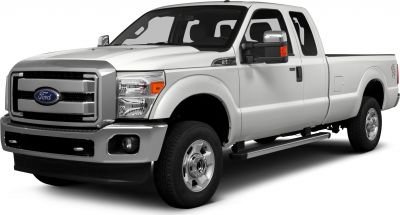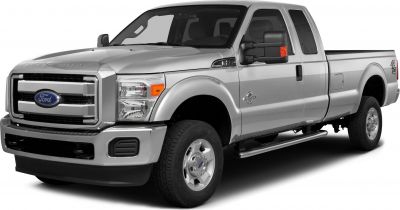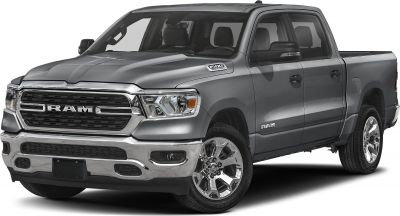 2003 Toyota Tundra I Double Cab (facelift 2002) Dimensions, Size & Specs
2003 Toyota Tundra I Double Cab (facelift 2002) Dimensions, Size & SpecsMeasurements of the 2003 Toyota Tundra I Double Cab, engineered for optimal performance and comfort
| Dimensions | |
|---|---|
| Length: | 5845 mm230.1 in19.2 ft |
| Width: | 2014 mm79.3 in6.6 ft |
| Height: | 1879-1889 mm74.0-74.4 in6.2-6.2 ft |
| Ground Clearance: | 277-302 mm10.9-11.9 in0.9-1.0 ft |
| Weight Specifications | |
| Curb Weight: | 2143-2252 kg4725-4965 lbs |
| Maximal permitted Weight: | 2994 kg6601 lbs |
| Tire Specifications | |
| Rims Sizes: | 16-inch rims:
|
| Tire Sizes: |
|
The 2003 Toyota Tundra I Double Cab (facelift introduced in 2002) is a robust and full-sized pickup truck produced between 2002 and 2006. This model stands out with its strong dimensions and versatile design, tailored for drivers needing a reliable vehicle for both work and everyday utility. It measures an impressive 5845 mm (about 230.1 inches) in length, offering ample cargo and passenger space typical of full-size pickups. The width is 2014 mm (79.3 inches), providing a sturdy stance on the road while contributing to an overall commanding look. The height varies between 1879 mm and 1889 mm (74.0 to 74.4 inches), depending on configurations or optional equipment, creating a balanced profile that supports stability and aerodynamics. Weight-wise, the curb weight ranges from 2143 kg to 2252 kg (4725 to 4965 lbs), reflecting the solid build quality and materials used. The maximum permissible weight reaches up to 2994 kg (6600 lbs), underscoring the truck's capability to haul significant loads. Ground clearance, critical for off-road capability, is notably generous between 277 mm and 302 mm (10.9 to 11.9 inches), allowing it to handle rough terrain with confidence. The wheel and tire setup varies with rims sized at 7.0J x 16 or 7.5J x 17 and tire dimensions from 245/70 R16 to 265/65 R17, balancing comfort and ruggedness. Overall, the 2003 Toyota Tundra I Double Cab facelift is a dependable and well-proportioned full-size pickup suitable for users seeking strength, size, and reliable performance.
Discover the standout features that make the 2003 Toyota Tundra I Double Cab a leader in its class
Have a question? Please check our knowledgebase first.
The 2003 Toyota Tundra I Double Cab facelift has a length of 5845 mm (approximately 230.1 inches), a width of 2014 mm (about 79.3 inches), and a height ranging from 1879 mm to 1889 mm (around 74 to 74.4 inches). These measurements emphasize its robust and sizeable pickup profile, designed to offer spacious cabin and cargo capabilities, while maintaining a commanding road presence typical of full-size trucks.
The curb weight of the 2003 Toyota Tundra I Double Cab (facelift 2002) varies between 2143 kg and 2252 kg (about 4726 to 4963 pounds), depending on specific configurations and optional equipment. The vehicle's maximum weight capacity, or Gross Vehicle Weight Rating (GVWR), is 2994 kg, equivalent to roughly 6600 pounds. This makes the Tundra a capable full-size pickup able to handle substantial payloads and towing tasks, suitable for both work and recreational use.
The 2003 Tundra I Double Cab facelift offers a ground clearance ranging from 277 mm to 302 mm (approximately 10.9 to 11.9 inches). This relatively generous ride height provides excellent capability for traversing uneven terrains, obstacles, and rough roads, an important feature for a pickup truck that may be used off-road or on construction sites. Higher ground clearance helps prevent damage to the underbody and enhances the truck's approach and departure angles.
Standard residential garages typically have door widths around 2.44 meters (8 feet) and interior height clearances around 2.13 meters (7 feet). Given the Tundra I Double Cab facelift's width of 2014 mm (79.3 inches or about 6.6 feet) and height up to 1889 mm (74.4 inches or about 6.2 feet), it will fit comfortably in terms of width and height in most standard garages. Lengthwise, at 5845 mm (230.1 inches or about 19.2 feet), the truck may be longer than some shorter garages but generally fits within the typical garage length of 6 to 7 meters (20 to 23 feet). Always check your garage’s specific dimensions before parking to ensure adequate space.
At 2014 mm wide (79.3 inches) and up to 1889 mm high (74.4 inches), the 2003 Toyota Tundra I Double Cab facelift falls within the typical size range for early 2000s full-size pickups. It is slightly narrower than some American competitors like the Ford F-150 or Chevrolet Silverado of the same era, which tend to be wider, often exceeding 2.1 meters (82 inches). The Tundra’s height is competitive, providing sufficient cabin space and road presence without feeling oversized. These dimensions make it a strong contender for buyers seeking a full-size pickup with a slightly more compact footprint.
The 2003 Tundra I Double Cab facelift came equipped with rims sized 7.0J x 16, 7.5J x 17, and tire sizes of 245/70 R16 or 265/65 R17. The larger 17-inch rims with wider tires (265 mm width) offer better road grip and stability, improving handling especially in rugged conditions. Meanwhile, the 16-inch rims with 245 mm tires provide a slightly softer ride due to taller tire sidewalls, which can help absorb bumps and improve ride comfort. The choice of tire and rim size impacts traction, fuel efficiency, and off-road capability.
The 2003 facelift version of the Toyota Tundra I Double Cab maintained the large footprint introduced in the earlier 1999-2002 generation but with minor refinements. While the overall length remained similar at around 5845 mm (230.1 inches), subtle updates to the width and height allowed for a slightly more modernized stance. Curb weight saw a moderate increase due to added features and structural rigidity for improved safety. Overall, the facelifted model retained the same strong, full-size pickup size profile but with a refreshed design and enhanced comfort.
Compared to rivals like the 2003 Ford F-150 or Chevrolet Silverado, the Toyota Tundra I Double Cab facelift is generally a bit narrower and slightly less tall but competes closely in overall length. For example, the F-150 can be over 2.1 meters (82.7 inches) wide, while the Tundra measures 2.01 meters (79.3 inches). The Silverado has comparable length and height but may have a heavier curb weight range. The Tundra's more compact width may offer easier maneuverability in tight spaces while still delivering strong payload and towing capabilities. It offers a competitive size package for buyers wanting a full-size truck with a slightly more manageable dimension set.
While exact bed volume for the 2003 Toyota Tundra I Double Cab facelift depends on the specific bed length option, it typically offers a standard bed around 6 feet in length, translating into a cargo space volume suitable for typical full-size pickup tasks. Combined with its maximum weight capacity of 2994 kg (6600 lbs), the Tundra is well-suited for heavy-duty hauling, including construction materials, tools, and recreational equipment. The rugged frame and suspension also support tough workloads, making it a practical choice for both personal and professional use.
Discover similar sized cars.

| Production: | 2011-2016 |
|---|---|
| Model Year: | 2011 |
| Length: | 5903 mm232.4 in |
| Width: | 2794 mm110.0 in |
| Height: | 1956-2019 mm77.0-79.5 in |

| Production: | 2011-2016 |
|---|---|
| Model Year: | 2011 |
| Length: | 5903 mm232.4 in |
| Width: | 2794 mm110.0 in |
| Height: | 1953-2042 mm76.9-80.4 in |

| Production: | 2025-present |
|---|---|
| Model Year: | 2025 |
| Length: | 5903-5936 mm232.4-233.7 in |
| Width: | 2062-2235 mm81.2-88.0 in |
| Height: | 1926-2079 mm75.8-81.9 in |
